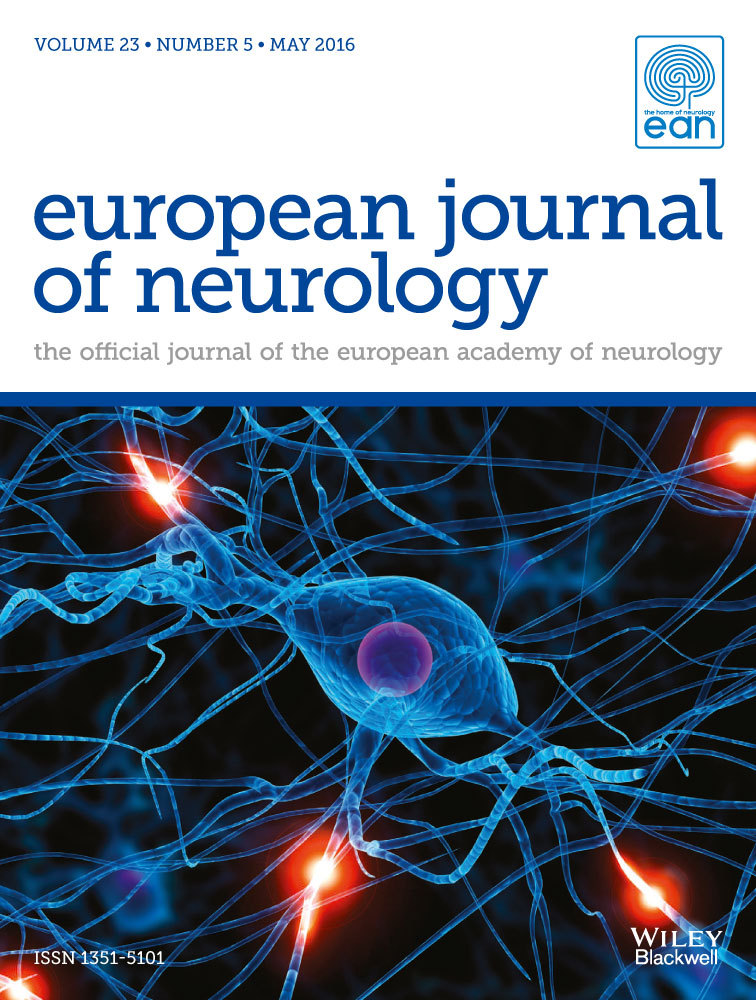Incidence and prognosis of immune reconstitution inflammatory syndrome in HIV-associated progressive multifocal leucoencephalopathy
Abstract
Background and purpose
Progressive multifocal leucoencephalopathy-associated immune reconstitution inflammatory syndrome (PML-IRIS) is the paradoxical worsening or unmasking of preexisting infection with JC virus attributable to a rapid recovery of the immune system after highly active antiretroviral therapy (HAART) initiation. We investigated the incidence and factors associated with PML-IRIS in HIV-infected patients. We also studied its influence on mortality of PML and the effect of corticosteroid therapy.
Methods
Single-center retrospective analysis of HIV-infected patients diagnosed with PML from 1996 to 2012 who received HAART.
Results
Among 59 PML patients treated with HAART, 18 (30.51%) developed PML-IRIS (five delayed PML-IRIS, 13 simultaneous PML-IRIS). Patients who developed IRIS had lower CD4 counts prior to treatment (102 vs. 68.5, P < 0.05) and experienced a greater decline in HIV-RNA levels in response to HAART (2.5log vs. 2.95log, P < 0.05). Gadolinium enhancement on MRI was observed in 31.25% of PML-IRIS cases versus 2.56% of PML non-IRIS (P < 0.01). Survival rates were higher in patients with PML-IRIS compared to those with PML non-IRIS. Eight patients received corticosteroids, five of which had a good outcome. Patients who died were severely ill when treatment was initiated whereas patients who survived were treated before major neurological deterioration occurred.
Conclusions
Nearly one-third of HIV-infected patients with PML develop IRIS after initiating HAART. Patients severely immunocompromised who experience a rapid virological response to HAART have a higher risk for PML-IRIS. There was a trend for lower mortality in patients with IRIS. Early treatment with corticosteroids might be useful.




